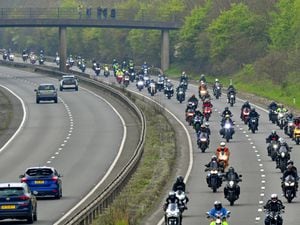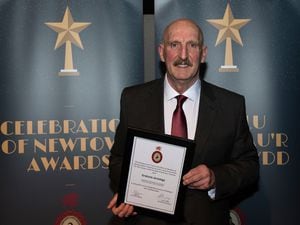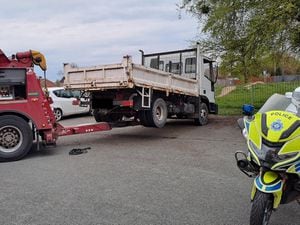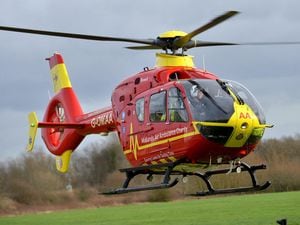Beacons will fan flames of peace across Shropshire on Armistice Day
Beacons will be lit in Shropshire on Armistice Day marking 100 years since the end of the First World War.
Preparations are under way in several communities including Bishop's Castle, Clive, Ludlow, Oswestry, Market Drayton, Much Wenlock, Sibdon, for residents to pay tribute to fallen First World War soldiers, sailors and airmen as thousands of beacons are lit across the country at 7pm on November 11.
Residents are being urged to bring torches as part of the night time act of peace and commemoration.
Beacons of Light will be flaming in Bishop's Castle at the playing fields; Clive at Grinshill; Oswestry at Old Oswestry Hillfort; Market Drayton at the town park off Manor Gardens; Much Wenlock at t Windmill Hill off Farley Road; Ludlow at Gallows Band and Sibdon at Sibdon Hill.
All will feature moments of remembrance before the beacons are lit simultaneously at 7pm along with thousands of others in the national Battle's Over project organised by Pageantmaster Bruno Peek.
Among the residents honouring relativres lost in the war will be Much Wenlock's Arthur Hill who lost two great-uncles on the same day in Gallipoli, Italy, in 1915, while his grandfather sustained life-changing injuries on the battlefield.
Mr Hill said: "We are proud to be playing a part in this historic international event to commemorate the centenary of the end of the Great War, and to recognise the contribution and sacrifice made by the men and women from our own community.”
In Oswestry the beacon project has been part of the Wilfred Owen festival dedicated to the town's most famous son and Great War poet.
Neil Phillips, of Oswestry Heritage Gateway group, said the 3,000-year-old hillfort where the brazier will lit had poignant connections with the conflict.
"A system of practice trenches dug into the top of the earthwork, which survive intact today though buried, were used to prepare troops from the nearby Park Hall military camp for action on the Western Front.
"Wilfred Owen was stationed at Park Hall in October 1916 around the time he wrote the poem ‘Storm’. It would be his final return to his place of birth before being killed in battle in November 1918."





